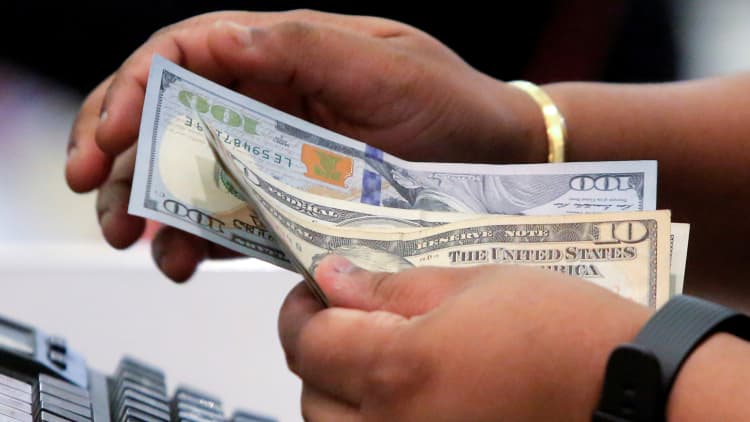If it seems like your paycheck disappears as quickly as it hits your bank account, you're not alone. More than 60% of Americans live paycheck to paycheck as of September 2023, according to a LendingClub report. Even people in higher income brackets are affected. More than half of Americans earning over $100,000 a year live paycheck to paycheck.
So what's going on?
Many experts point to a phenomenon called lifestyle inflation as one of the culprits. Lifestyle inflation, or lifestyle creep, is the pattern of spending a little more as a person's income increases.
"I think people hold these benchmarks in their mind [of], if I reach this position or I get this promotion or I make it to this age, then I can live this life, or then I deserve to have these things," said Sabrina Romanoff, a clinical psychologist who works with clients struggling with financial stress. "Then they kind of go a little crazy or go a little wild on it, and then it becomes like a trade-off, like they only can enjoy their present happiness and they're not able to save or plan for the future."
More from Personal Finance:
Women are 'significantly more likely' to live paycheck to paycheck
Here's where to invest your cash to save on taxes in 2024
The new FAFSA will be available by Dec. 31 — what families need to know
But spending more may not be as simple as people wanting to indulge. Many Americans simply don't have enough money to make ends meet because their incomes have not been keeping up with the rise in costs of living.
"The idea that people save and they just hit a point where they feel like they deserve [to spend more]; I fully disagree with that," said Saprina Allen, a budgeting coach who offers insights and guidance to her more than 100,000 TikTok followers on how to be more conscious about money. "When most people don't have $1,000 in the bank, like most people cannot handle a tire blowout or they're going to put it on credit."
Allen breaks down lifestyle inflation into two buckets.
One is that "general idea of what lifestyle inflation is, which is the buying fancy cars, the buying nice things along those lines," she said.
The second bucket, she said, is more about "everyday things that, if you're living paycheck to paycheck, you're going without." These may be necessary goods or services, such as going to the dentist or getting the car's oil changed regularly.
"There was a time in my life when [an] oil change was just like, not even a priority," Allen said. "I'm trying to keep tires on my car. I'm trying to keep it running. I'm trying to keep the registration paid. I'm not concerned about an oil change."
Living paycheck to paycheck makes people vulnerable to accumulating high-interest credit card debt. Almost half, 46%, of Americans said they held a balance on their credit card because of an emergency expense, according to a September 2022 CreditCards.com survey. Experts recommend having an emergency fund to fall back on with roughly three to six months' worth of living expenses.
"The goal here is to find balance," Romanoff said. "It's about enjoying your life, but not being so focused in a future that hasn't come yet or too much focus on the present. The idea is having your cake and eating it too. You can have bites of your cake right now and then save some cake for later."
Watch the video above to learn more about why Americans are struggling to keep their money in their pockets.



